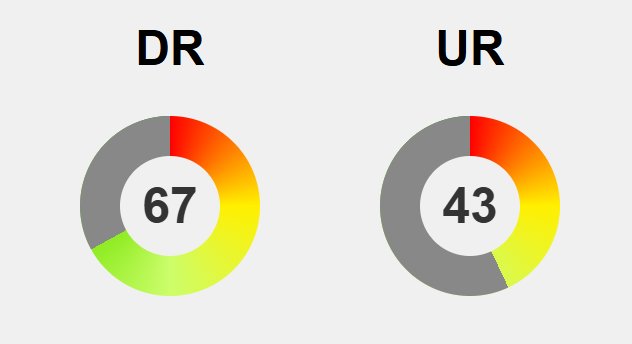Living vicariously through others offers fleeting moments of joy and connection, yet at what cost to our own growth and fulfillment? In an era dominated by social media and curated narratives, it’s easy to get caught in the trap of comparison and passive observation, which can erode self-esteem and dampen motivation. While celebrating others’ successes feels uplifting, relying too heavily on external validation risks turning us into spectators rather than active participants in our lives. True fulfillment, however, emerges from setting personal goals, overcoming challenges, and appreciating our unique journeys. This compelling exploration highlights how excessive vicarious living can fuel dissatisfaction and stagnation, urging readers to shift their focus inward. By cultivating resilience, practicing gratitude, and intentionally engaging in self-growth, we can transform passive admiration into empowering action—creating a more authentic and satisfying life story. Are we willing to turn the spotlight from others back onto ourselves?
Living Vicariously: The Digital Age’s Hidden Trap
Living vicariously through others has become a pretty common part of modern life. Thanks to social media, streaming platforms, and celebrity culture, it’s easier than ever to peek into lives that aren’t our own. We scroll through Instagram feeds filled with perfect vacations, watch YouTube videos about exotic adventures, or follow friends’ career milestones—all from the comfort of our couch. These glimpses create a sense of connection and excitement, making it almost automatic to live part of our emotional landscape through others’ stories.
This habit isn’t just a quirk of the digital age; it taps into deep human tendencies to empathize and connect. We get drawn into celebrating someone’s success or feeling inspired by their challenges. It’s natural to enjoy these vicarious experiences—they spark feelings of pride, hope, or even envy. But as these moments become more frequent, the line between admiration and over-identification can blur. We start to live more through curated images and stories than in our own reality, often filling emotional gaps with others’ achievements instead of cultivating our own.
The appeal of vicarious living is that it’s effortless. Watching someone else succeed can temporarily lift our spirits or give us a sense of belonging. It’s easier to cheer from the sidelines than to face the uncertainties of our own pursuits. But over time, this passive consumption can become a trap. Relying heavily on others’ highlight reels for validation can lead to complacency, making us feel like spectators rather than active participants in our own lives. This shift can chip away at our motivation and make genuine achievement seem further out of reach.
Living through others also distorts our sense of what’s possible. Curated social media feeds often showcase an idealized version of success that’s hard to match. This can lead to feelings of inadequacy or FOMO, even when we’re making real progress ourselves. Instead of inspiring us, these images can leave us feeling like we’re missing out or falling behind, which erodes self-confidence and satisfaction. Recognizing this tendency is the first step toward shifting focus back to our own growth and accomplishments.
Ultimately, while vicarious enjoyment offers fleeting joy and connection, it can also overshadow the importance of building our own stories. Authentic fulfillment comes from overcoming challenges, setting personal goals, and celebrating our progress—things that social media can’t truly capture. Living vicariously is easy and often tempting, but the real reward lies in actively participating in our own journey. Finding that balance is key to ensuring we don’t trade long-term happiness for momentary satisfaction.
The Silent Toll of Comparing: How Vicarious Living Affects Your Mind
Living through others can deeply influence our mental health, often in ways we don’t immediately notice. When we spend too much time watching others succeed or lead exciting lives, we risk falling into a pattern of constant comparison. Seeing curated images of luxury, achievement, and happiness can make us judge ourselves harshly, feeling like we’re falling behind or aren’t good enough. Over time, these feelings chip away at our self-esteem, leaving us with a persistent sense of inadequacy that affects both confidence and emotional well-being.
Social media amplifies this effect. The feeds filled with polished success stories and perfect moments create a distorted view of reality. Many of us start believing that everyone else is living more fulfilling, exciting lives, which fuels envy and dissatisfaction. This perception can diminish our motivation to pursue our own goals, as we start to think achievement is out of reach or not worth the effort. The more we compare, the more we feel like spectators in our own lives, rather than active participants.
Living vicariously can also dampen our drive to act. Watching others succeed from a distance often leads to the belief that achievement is beyond our control, or that it’s easier just to observe than to participate. This passive attitude fosters complacency, making us wait for inspiration or the perfect moment that may never come. As a result, we may feel stuck, experiencing emotional fatigue and a sense of stagnation that discourages genuine growth.
Another consequence is emotional drain. When we constantly compare our everyday reality to others’ highlight reels, it’s easy to see our lives as lacking or incomplete. This perpetual longing for what others have can overshadow our appreciation for our own progress, no matter how small. Focusing too much on external stories pulls us away from what truly brings happiness—our relationships, personal achievements, and inner growth—leading to dissatisfaction and disconnect from ourselves.
These patterns gradually weaken resilience. When our self-esteem relies heavily on external validation, setbacks become harder to handle. We start questioning whether our efforts are enough and whether we’re capable of leading a meaningful life. This cycle of disappointment and self-doubt makes it tempting to retreat into passive observation, avoiding the effort needed for authentic progress.
Recognizing these impacts is key to shifting our perspective. By becoming aware of how living through others affects our mental health, we can start nurturing a healthier mindset—focusing on our own growth, celebrating small wins, and building resilience from within. Moving away from passive watching toward active participation in our own lives creates a foundation for genuine well-being and long-term fulfillment.
From Inspiration to Overwhelm: Balancing Admiration and Self-Growth
To strike a healthy balance between enjoying others’ successes and focusing on your own growth, shifting your perspective from comparison to inspiration makes a big difference. When someone achieves something impressive, try to see it as a motivation rather than a reminder of what you lack. Celebrate their wins genuinely, but remind yourself that your journey is unique and valuable. Asking what lessons or ideas you can take from their experience helps turn envy into a shared sense of progress, keeping your motivation alive.
Setting clear, personal goals rooted in your passions and values helps keep you focused on your development. When your objectives are defined by what matters most to you, comparison becomes less tempting. Break these goals into small, manageable steps and celebrate each milestone. These little wins build confidence and reinforce that progress comes from consistent effort, not external validation. Over time, this approach nurtures your sense of purpose and keeps you engaged with your own path.
Limiting exposure to curated content that fuels comparison can make a real difference. Social media often presents idealized versions of success that distort reality and heighten feelings of inadequacy. Instead, dedicate time to activities that promote growth—learning new skills, practicing a hobby, or connecting with loved ones. Filling your schedule with actions that develop you shifts focus from passive scrolling to active participation. This conscious choice reduces the temptation to compare and helps you recognize genuine progress in your life.
Practicing gratitude regularly for your achievements, no matter how small, creates a positive mindset. Taking a moment to acknowledge your efforts and progress helps ground you in your reality. This habit shifts attention from what’s missing to what’s already yours, decreasing feelings of envy. When gratitude becomes part of your routine, celebrating others’ successes becomes easier without feeling diminished, fostering a healthier perspective and boosting your confidence.
Building routines centered on personal growth can create lasting change. Dedicate specific times each day or week to activities that bring you closer to your goals—reading, practicing a craft, or reflecting on your progress. Consistency turns small daily efforts into habits that deepen your sense of purpose. These routines serve as gentle reminders that your growth depends on your effort, not external praise. Over time, they foster resilience and a sense of fulfillment rooted in your own journey.
Finally, developing resilience is key to maintaining this balance. Accept setbacks and slow progress as natural parts of growth. When obstacles arise, see them as opportunities to learn rather than reasons to give up. Cultivating patience and self-compassion keeps you moving forward, even when results are slow. This mindset transforms challenges into stepping stones, strengthening your confidence and reinforcing your commitment to living your own story rather than just watching others build theirs.
By actively seeking out resources and communities that support your personal development, you can further reinforce this positive mindset. Exploring tools like self-improvement platforms or inspirational content can provide ongoing motivation and guidance. For more insights on cultivating a growth-oriented mindset, you might find helpful this comprehensive guide on self-growth resources.
Turning Dreams into Reality: Practical Steps to Shift Focus to Personal Achievements
Shifting your focus from living vicariously to pursuing your own goals begins with taking small, deliberate steps. Clarify what truly matters to you—whether it’s advancing in your career, developing a hobby, or improving your health. Writing down these goals makes them concrete and helps maintain your focus. Break them into manageable tasks, so progress feels achievable, and celebrate each small victory along the way. These wins build momentum and remind you that meaningful change comes from consistent effort, not external validation.
Reducing exposure to social media and curated content can make a significant difference. Platforms often showcase highlight reels that distort reality and fuel comparison. Instead of mindless scrolling, dedicate time to activities that foster growth—learning a new skill, practicing a hobby, or connecting with loved ones. Filling your schedule with actions that develop you redirects your energy from passive consumption to active progress. Over time, this shift helps you recognize genuine achievements in your life and diminishes the pull of unrealistic standards.
Creating routines centered on personal development reinforces your commitment. Set aside specific times each day or week for activities that bring you closer to your goals—reading, practicing a craft, or reflecting on your progress. Consistency turns these efforts into habits that deepen your sense of purpose. These routines serve as gentle reminders that your growth depends on your effort, fostering resilience and helping you stay engaged even when results seem slow.
Practicing gratitude for your achievements, no matter how small, shifts your mindset toward positivity. Take a moment regularly to acknowledge what you’ve accomplished and appreciate your progress. This habit grounds you in your reality and helps you value your journey. As gratitude becomes routine, celebrating others’ successes no longer diminishes your own; instead, it enhances your confidence and broadens your perspective, making room for both personal growth and shared joy.
Building resilience is essential for sustaining this shift. Accept setbacks and slow progress as natural parts of growth. View obstacles as opportunities to learn rather than reasons to give up. Cultivating patience and self-compassion keeps you moving forward, even when immediate results aren’t visible. This mindset transforms challenges into stepping stones, strengthening your confidence and reinforcing your commitment to your unique path.
Focusing on your personal development rather than external validation creates a more fulfilling and sustainable life. Celebrate your small victories, stay committed to your goals, and recognize that genuine happiness arises from authentic effort. By actively participating in your own journey, you build a resilient, meaningful life rooted in your passions and progress—one that no shortcut or borrowed success can truly replicate.
Finding Your Own Path: The Key to Lasting Fulfillment and Genuine Happiness
Finding a balance between enjoying others’ successes and focusing on your own growth is key to lasting fulfillment. While it’s natural to feel inspired or motivated by others’ achievements, these feelings should serve as a boost rather than a distraction. Celebrating others’ wins can energize your efforts, but they shouldn’t overshadow your pursuit of personal goals or diminish your sense of self-worth. True happiness comes from meaningful accomplishments, overcoming challenges, and building your own legacy—not just observing or envying others’ stories.
We live in a society that often emphasizes external validation—likes, followers, and curated highlights—but genuine fulfillment arises from authentic progress. Investing in your growth—whether through developing a skill, pursuing a passion, or overcoming setbacks—creates a sense of purpose that external praise can’t fully provide. The most rewarding moments come from these genuine efforts, not from living vicariously through others’ successes. Recognizing this shifts your perspective from passive observer to active participant in your own life story.
Social media plays a significant role in shaping perceptions, often distorting reality with polished success stories that fuel comparison and dissatisfaction. Limiting exposure to these curated images allows you to focus more on your own journey. Instead of mindless scrolling, engage in activities that nourish your development—learning new skills, practicing hobbies, or connecting with loved ones. These actions reinforce your progress and help you appreciate your unique path, reducing the urge to measure yourself against unrealistic standards.
Building resilience is essential to maintaining this balance. Accept setbacks and slow progress as natural parts of growth. When obstacles arise, see them as opportunities to learn rather than reasons to give up. Cultivating patience and self-compassion keeps you moving forward, even when results aren’t immediate. This mindset transforms challenges into stepping stones, strengthening confidence and deepening your sense of purpose. Over time, it creates a sustainable foundation for authentic fulfillment rooted in your own efforts.
Every individual’s journey is unique, and comparing yourself to curated images or social media highlights can cloud that reality. Instead, focus on what truly matters—your passions, talents, and personal aspirations. Actively investing in your growth and celebrating small victories along the way nurtures a resilient, meaningful life. Living your own story, with its ups and downs, offers a richer and more enduring happiness than living vicariously through others’ successes. By staying grounded and committed to your authentic path, you build a life that’s truly your own.




